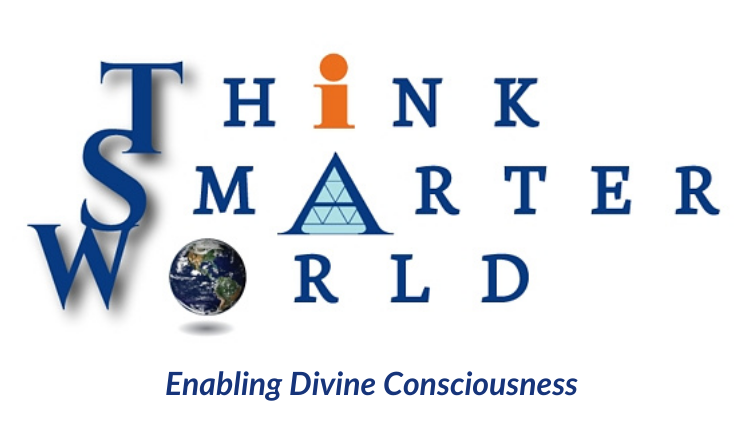Though the extreme chaos present in the world today is deeply troubling, it is also a sign of dramatic change, if managed correctly, would usher in a much better world for all of us. However, no significant change of a complex system occurs without first increasing the entropy within that system and loosening rigidly fixed elements. It is that process that allows the opportunity for creating new and more beneficial aspects of that system or replacing the system all together.
This is the point we have arrived at today in virtually every aspect of our society – politics, finance, healthcare, science, environment, education, spirituality, and more. We are at an inflection point where critical decisions and conscious choices for our future must be made. In order to navigate those choices and decisions well, our own high level principles need to be aligned with truth, wholeness, and interconnection.
Systems Thinker and Activist, Louise Diamond put down thoughts on just this subject in a book chapter from 1997 titled A Systems Approach to Peacebuilding. The book was titled Beyond Win-Win but was unfortunately never completed. Regardless, the chapter is a brilliant exposition on crafting a more enlightened and saner world. Here is a section with particularly poignant insights:
“The search for the building blocks of matter, or life itself, has led to the astounding realizations that matter is energy in motion; that life is process as well as substance; that consciousness is an inherent and critical component of any living system; and that everything is connected through a vast set of interdependent webs or networks.
This revolution in science has led to a shift in thinking as radical as the Copernican discovery of the Sun rather than the Earth as the center of our solar system. It is as big a change for the human family as the Iron Age, the Industrial Revolution and the Age of Information Technology all rolled into one, for it re-orders how we think about the nature of reality itself, of everything in our world and in our lives.
(Fritjof) Capra says further…
The paradigm that is now receding has dominated our culture for several hundred years, during which it has shaped our modern Western society and has significantly influenced the rest of the world. This paradigm consists of a number of entrenched ideas and values, among them the view of the universe as a mechanical system composed of elementary building blocks, the view of the body as a machine, the view of life in society as a competitive struggle for existence, the belief in unlimited process to be achieved through economic and technological growth, and –last, but not least — the belief that a society in which the female is everywhere subsumed under the male is one that follows a basic law of nature. All of these assumptions have been fatefully challenged by recent events. And, indeed, a radical revision of them is now occurring.
It does not take much mental effort to see that the political systems we have been living with for the last several hundred years — a polity of nation states run almost entirely by men in which imperialism, racism, sexism, colonialism, and other forms of power relations based on domination and suppression, with increasingly sophisticated weapons of destruction as the tool of enforcement — is a direct outgrowth of this Cartesian world view. If everything is separate, then the door is open for the strongest to rule, and conquest becomes the norm–conquest of our neighbor, of the minority group living among us, of women or the feminine energy, of the frontier, even of nature herself.
Many of the places in the world today in which peace builders are needed are places seeking to repair the harm that is the legacy of such force-oriented and polarized systems. Today’s conflicts over land, identity, religion, natural resources, and power are still driven by the assumptions of this reductionist world view. Even the recent focus on the global economy and geo-economics as a critical element in world affairs is based on the same set of false premises.
The new paradigm or worldview — called holism or deep ecology or systems thinking — posits an altogether different set of assumptions and inferences. If reality is all about energy, interconnectedness and consciousness — rather than matter, separation and mechanistic reactions — then we need to frame our lives totally differently: we need to pay attention to how the the energy moves throughout those webs of relationship; what patterns are prevalent and how new ones can be created; and the role our consciousness can play in shaping our realities.
In other words, we need to think of the whole as more than the sum of the parts; of the interactions of different phenomenon; of the possibilities and potentialities inherent in the networks; of the context in which any phenomenon occurs. We need to think of the viability of this great web of being, and of our place in it and our responsibility for its well-being.
Furthermore, we need to let this view permeate our values, our beliefs, our assumptions, our perceptions, our structures of society, and our behaviors, for if it is true (and our own sciences seem to be convinced that it is so) that we are all part of a single web of life, then truly, the teaching of our great peace leaders that to cause harm to another is to harm ourselves is a profound wake up call, not only to environmental action but also to how we establish and maintain all our social, political, and economic systems on this planet.”
You cannot get more truth than that…
~Jay Kshatri
www.ThinkSmarterWorld.com





